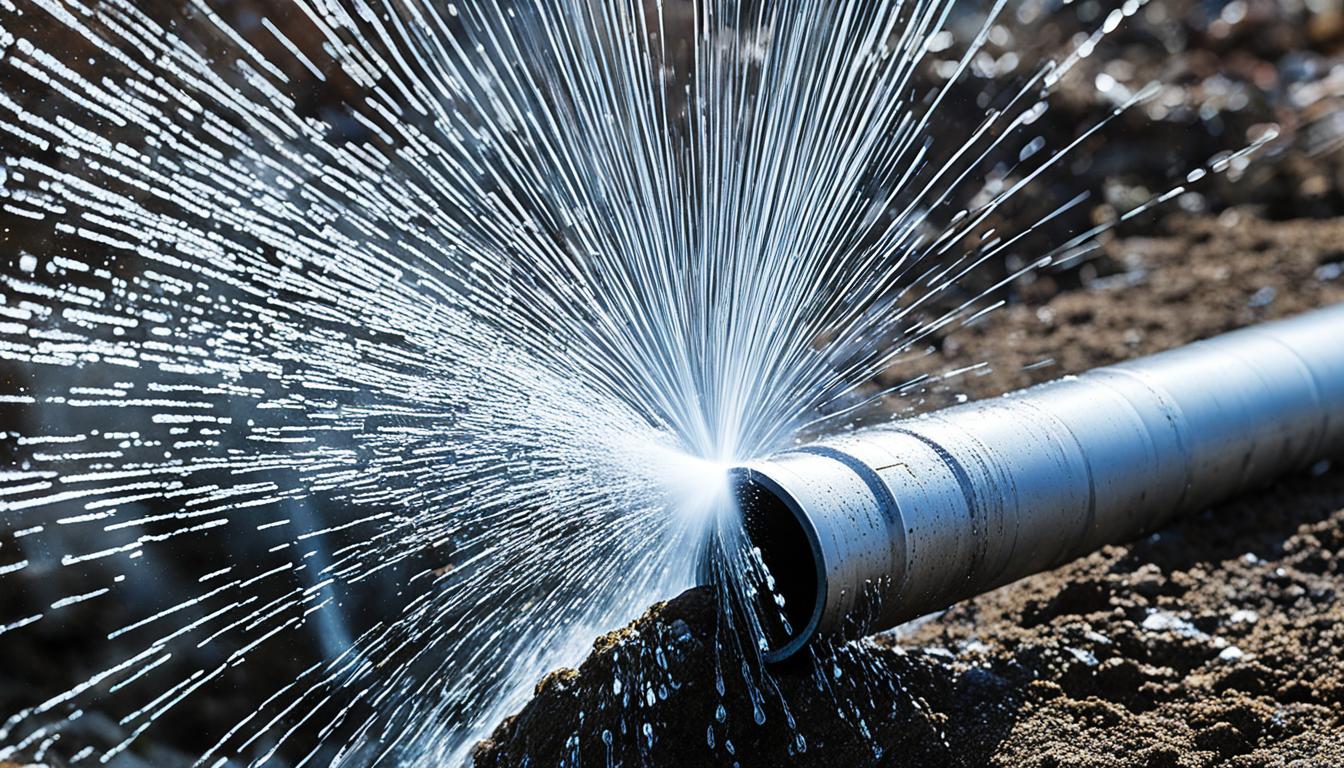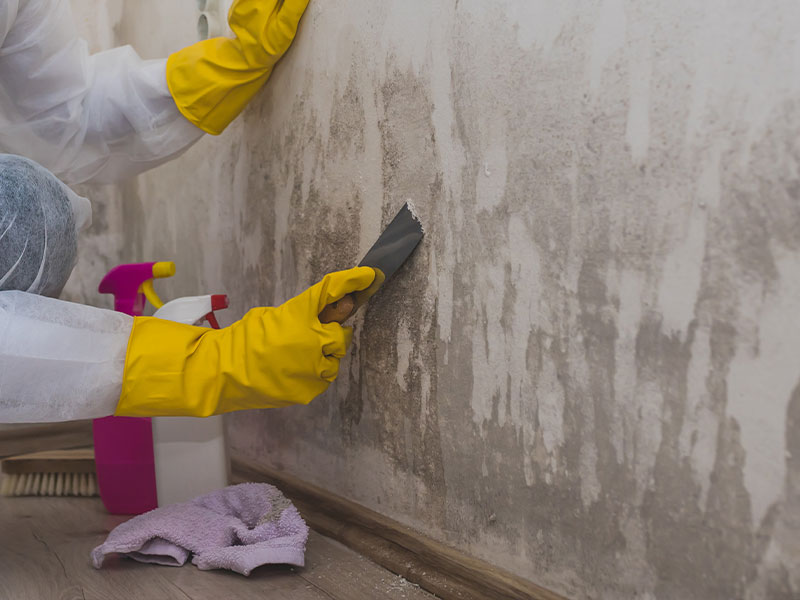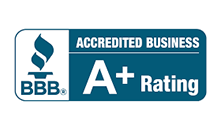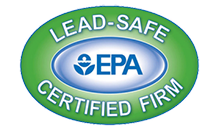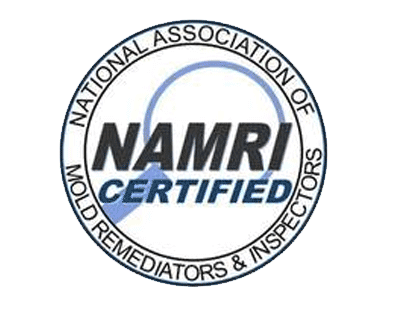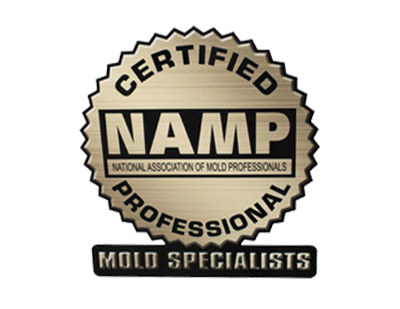Imagine coming home to a burst water pipe flooding your home. The water is gushing out, causing damage and chaos. What would you do in such a situation? Do you know the immediate actions to minimize the damage and protect your property?
A burst water pipe is a homeowner’s nightmare, but being prepared and knowing what steps to take can make all the difference. In this article, we will provide you with a step-by-step guide on what to do if you have a burst water pipe, ensuring that you can take immediate action and minimize the extent of the damage.
Key Takeaways:
- Taking immediate action is crucial when faced with a burst water pipe to minimize damage.
- The first step is to shut off the water supply to prevent further water flow.
- Contact a professional plumber to assess and repair the burst pipe.
- Remove standing water and dry the area to prevent mold and mildew growth.
- Document the damage for insurance purposes by taking photographs or videos.
Immediate Steps to Take When a Pipe Bursts
When faced with the sudden and alarming event of a burst water pipe in your home, it is crucial to act swiftly and take immediate steps to prevent further damage. By following these immediate actions, you can minimize the extent of the damage and ensure the safety of your property and belongings.
The first and most important step when a pipe bursts is to shut off the water supply to prevent any more water from flowing. Locate the main shut-off valve in your home and turn it off. This will halt the water flow and significantly reduce the potential for additional damage. Time is of the essence, so make sure you act without delay.
After shutting off the water supply, call an emergency plumber immediately. Burst pipes require the expertise and specialized equipment of a professional plumber to assess and repair the damage. Trying to fix the pipe yourself could potentially worsen the situation and lead to additional costly repairs. Trusting a professional ensures that the necessary repairs are done correctly and efficiently.
While waiting for the plumber to arrive, it is important to minimize further damage by removing any standing water in the affected area. Utilize a wet/dry vacuum, mop, or absorbent towels to remove as much water as possible. This step helps prevent the water from spreading and causing additional harm to your home. Set up fans or a dehumidifier to help dry the area and prevent the growth of mold and mildew.
This sequence of immediate steps will help you address the immediate crisis and minimize the damage caused by the burst pipe. Remember to act quickly, seek professional help, and take necessary steps to prevent standing water and promote drying to safeguard your home and belongings.
Common Causes of Burst Water Pipes
Understanding the common causes of burst water pipes is essential in maintaining the integrity of your plumbing system and preventing costly damage. Several factors can contribute to pipe bursts, including corrosion, freezing temperatures, pipe movement, and clogs.
Corrosion is a primary cause of burst water pipes. Over time, the internal walls of the pipes can corrode due to pH imbalances in the water or the presence of rust. This gradual deterioration weakens the pipe’s structural integrity, making it more prone to leaks and eventual bursts. Homes with well water may be more susceptible to rusty pipes due to higher iron concentrations.
During winter cold spells, freezing temperatures can cause water inside the pipes to freeze and form blockages. As the ice expands, it puts increased pressure on the pipe walls, leading to a burst. Proper insulation and taking precautions to prevent freezing are essential in colder climates to avoid this common cause of burst water pipes.
Pipe movement can occur due to various factors such as temperature changes or repairs to other parts of the plumbing system. Cold temperatures can cause pipes to contract and shift, while high water pressure can also lead to pipe movement. This movement places additional stress on the pipes, potentially resulting in leaks and bursts.
Clogs within the pipes can also lead to burst water pipes by increasing water pressure. When a clog forms deep within the pipe, water pressure builds up around the blockage. If the pressure becomes too great for the pipe to handle, it may result in a burst. Regular maintenance and clearing of clogs can help prevent this issue.
Identifying the Signs of a Burst Pipe
One of the most visible signs of a burst water pipe is the presence of large puddles of water in your home. These puddles may form directly under the burst pipe or can spread through walls, causing water damage to surrounding areas. It is essential to take immediate action if you notice a significant increase in water accumulation when using faucets or appliances.
A sudden decrease in water pressure throughout your home can be an indicator of a burst pipe. When a pipe bursts, water may no longer flow through the intended channels, resulting in low water pressure. If you notice a significant drop in water pressure or weak flow from faucets, it may be a sign of a burst pipe.
Water stains on walls or ceilings are another telltale sign of a burst pipe. These stains typically indicate the location of the burst and can help pinpoint the area that requires immediate attention. Look for large water stains that appear in specific areas, especially along walls or ceilings in close proximity to your plumbing system.
Discolored water, especially if it appears reddish or has a metallic smell, can signify a burst pipe. Rusty pipes or a high concentration of minerals in the water can cause discoloration and unusual odors. If you observe a change in water color or experience an unusual smell, it is advisable to investigate further for potential burst pipe issues.
A sudden spike in your water bill can be an indication of a burst pipe. The excess water leaking from the burst pipe leads to increased water consumption and wastage. If you receive a significantly higher water bill without any explanation, it is essential to investigate the source of the issue, including the possibility of a burst pipe.
Unusual sounds, such as constant dripping or water running within the walls, can be signs of a burst pipe. Additionally, metallic clangs or rattling noises from the pipes may indicate pipe movement or breaks. It is important to listen for any unfamiliar sounds coming from your plumbing system, as they may indicate a burst pipe.
What to do if you have a burst water pipe?
The first step when faced with a burst water pipe is to turn off the water supply immediately. This is crucial to prevent further water damage and reduce the pressure within the pipes. Locating the main shut-off valve in your home and turning it off will halt the flow of water and minimize the extent of the damage.
After turning off the water supply, it is essential to call a professional plumber right away. Only a trained plumber has the expertise and tools necessary to assess the damage, provide proper repairs, and ensure the burst pipe is fixed correctly. Attempting to fix the pipe yourself may result in further damage or inadequate repairs.
Once the water supply has been shut off and a plumber has been called, it is important to clear any standing water from your home. Using a wet/dry vacuum, mop, or towels, remove as much water as possible to minimize damage to your property and prevent the growth of mold or mildew. Prompt removal of standing water is crucial to mitigate the effects of the burst pipe.
It is essential to document the damage caused by the burst pipe for insurance purposes. Take photographs or videos of the affected areas, focusing on the extent of the damage and any valuable possessions that may have been impacted. This documentation will assist with filing insurance claims and ensure you receive the necessary compensation for repairs and replacements.
Professional Plumbing Services: How They Handle Burst Pipes
When faced with a burst pipe, it is crucial to seek professional assistance to ensure the problem is addressed effectively. Professional plumbers have the expertise and experience to assess the extent of the damage and determine the best course of action for repairs. Let’s take a closer look at the process of how professional plumbing services handle burst pipes.
First and foremost, professional plumbers conduct a comprehensive assessment of the burst pipe and the surrounding area. Through a thorough examination, they can accurately diagnose the issue and evaluate the extent of the pipe damage. This assessment allows them to develop a precise plan for repairs and determine the most effective solutions.
Once the assessment is complete, professional plumbers prioritize timely repairs and replacements for burst pipes. They have the necessary tools and equipment to fix the burst pipe promptly, minimizing further damage to your plumbing system. Their expertise ensures that all necessary repairs are carried out efficiently and effectively, restoring the functionality of your pipes and preventing future issues.
In some cases, a burst pipe may require pipe replacement due to severe damage or ongoing issues. Professional plumbers can recommend and carry out pipe replacements to ensure long-term reliability. By using high-quality materials and following industry standards, they ensure that your plumbing system is restored with durable and efficient pipes.
Preventive maintenance is another vital aspect of professional plumbing services. In addition to handling burst pipes, professional plumbers offer preventive maintenance programs to help prevent future bursts. Through regular plumbing inspections, they can identify potential issues and address them before they escalate into major problems. This proactive approach can extend the lifespan of your plumbing system and save you from costly repairs down the line.
Overall, professional plumbing services are essential when dealing with burst pipes. Their expertise in assessment, repairs, pipe replacement, and preventive maintenance ensures that burst pipe issues are resolved effectively and efficiently. By relying on professional plumbers, you can have peace of mind knowing that your plumbing system is in capable hands.
Preventative Measures to Protect Your Pipes
When it comes to preventing burst pipes, there are several effective measures you can take to safeguard your plumbing system. By implementing these preventative steps, you can minimize the risk of pipe damage and avoid the inconvenience and expense of dealing with a burst pipe.
One crucial preventative measure is insulating exposed pipes, especially during cold weather. Adding insulation to pipes located in unheated areas or near exterior walls provides an extra layer of protection against freezing temperatures. You can use insulation materials such as foam sleeves or heat tape to effectively insulate your pipes.
Maintaining proper heating in your home is also essential in preventing burst pipes. Set your thermostat to a temperature that ensures sufficient heating throughout your house, even during periods of extended absence. This helps keep the pipes warm enough to prevent freezing and subsequent bursts. Additionally, keeping interior doors open allows warm air to circulate, further assisting in preventing freezing.
In freezing temperatures, allowing faucets to drip can help prevent pipes from freezing. By allowing a small amount of water to flow continuously, you reduce the risk of stagnant water within the pipes freezing and causing blockages. Dripping faucets also relieve pressure within the pipes, reducing the likelihood of bursts. Make sure to open both hot and cold faucets slightly to maintain a steady flow.
Regularly inspecting your plumbing system for leaks and cracks is another critical preventative measure. Leaks and cracks in the pipes can increase water pressure, potentially leading to bursts. Promptly seal any identified leaks or cracks to maintain optimal water pressure and minimize the risk of bursts.
By implementing these preventative measures, you can significantly reduce the likelihood of experiencing burst pipes and the associated damage. Taking proactive steps to protect your pipes ensures the long-term functionality and reliability of your plumbing system.
Understanding Insurance Coverage and Claims for Burst Pipes
When it comes to burst pipes and the resulting water damage, homeowners insurance policies typically provide coverage. However, it is crucial to have a thorough understanding of the specific coverage provided by your policy. Familiarize yourself with the terms and conditions to ensure you have adequate coverage for burst pipes, water damage, and the necessary repairs or replacements.
If you experience a burst pipe, it is essential to file an insurance claim promptly. This will initiate the reimbursement process and allow you to recover the costs associated with the damage. To ensure a smooth and efficient claim resolution, gather all necessary documentation, including photographs, videos, and receipts for repairs or replacements. Be prepared to provide your insurance company with the required information to facilitate the claims process.
While burst pipe damage is typically covered by homeowners insurance, it is worth considering additional coverage options to provide enhanced protection. Water backup coverage, for example, offers coverage for instances such as backed-up drains or failed pumps, which can also lead to water damage. Similarly, service line coverage protects against issues affecting service lines on your property, such as damage caused by tree roots or aging infrastructure. Consult with your insurance agent to determine if these additional coverage options are suitable for your needs.
Conclusion
Burst water pipes can lead to significant damage to your home if not promptly addressed. Taking immediate action is crucial to prevent further harm and minimize the extent of the damage. Shutting off the water supply and promptly contacting a professional plumber are essential steps to take when faced with a burst pipe. By acting quickly, you can mitigate the potential consequences and protect your property.
In addition to immediate action, implementing preventive measures is key to safeguarding your home against burst pipes. Proper insulation of exposed pipes, maintaining adequate heating during cold weather, and allowing faucets to drip to prevent freezing are effective measures to prevent burst pipes. Regularly inspecting your plumbing system for leaks and cracks and addressing them promptly can also help minimize the risk of bursts.
Understanding your insurance coverage for burst pipes is crucial in case of emergencies. Familiarize yourself with your homeowners insurance policy and any additional coverage options that may be available to you. By knowing your coverage and filing claims promptly with the necessary documentation, you can ensure a smooth and efficient claim resolution process.
By staying informed, taking immediate action, implementing preventive measures, and understanding your insurance coverage, you can effectively handle burst water pipe emergencies. Don’t wait until it’s too late. Protect your home and prevent damage by being prepared for potential burst pipe situations.
FAQ
What should I do if I have a burst water pipe?
When faced with a burst water pipe, it is crucial to take immediate action to minimize damage. The first step is to shut off the water supply by locating the main shut-off valve in your home and turning it off. After that, call a professional plumber immediately for expert assistance. It is important to remove any standing water using a wet/dry vacuum or mop, and set up fans or a dehumidifier to dry out the area. Keep in mind that prevention is key, so it is advisable to insulate your pipes and regularly maintain your plumbing system.
What are the common causes of burst water pipes?
Burst water pipes can be caused by corrosion, which weakens the pipe’s integrity over time. Freezing temperatures can also lead to burst pipes, as the water inside freezes and expands. Pipe movement and shifts due to temperature changes or repairs to the plumbing system can also stress the pipes and result in bursts. Additionally, clogs within the pipes can increase water pressure, potentially causing a burst.
How can I identify the signs of a burst pipe?
Signs of a burst pipe include large puddles of water, a sudden decrease in water pressure, water stains on walls or ceilings, discolored water, a spike in your water bill, and unusual sounds coming from your plumbing system.
What immediate steps should I take if a pipe bursts?
The first step is to turn off the water supply immediately by locating the main shut-off valve in your home and turning it off. Then, call a professional plumber for expert assistance. It is important to remove any standing water using a wet/dry vacuum, mop, or towels. Finally, document the damage for insurance purposes by taking photographs or videos of the affected areas.
How do professional plumbing services handle burst pipes?
Professional plumbers assess the extent of the damage caused by the burst pipe, provide necessary repairs, and ensure the burst pipe is fixed correctly. They prioritize timely repairs and replacements, and also offer preventive maintenance services to help prevent future burst pipes.
What preventative measures can I take to protect my pipes from bursting?
To prevent burst pipes, you can insulate exposed pipes, maintain proper heating in your home during cold weather, allow faucets to drip in freezing temperatures, and regularly inspect your plumbing system for leaks and cracks.
How does insurance coverage and claims work for burst pipes?
Burst pipe damage is typically covered by homeowners insurance, but it is important to understand the specific coverage provided by your policy. It is advisable to file an insurance claim promptly and provide documentation of the damage for reimbursement. Additional coverage options, such as water backup and service line coverage, may be available to further protect your property.
What should I do to prevent further damage if I have a burst water pipe?
If you have a burst water pipe, it is important to turn off the water supply immediately, call a professional plumber for assistance, remove standing water from your home, and document the damage for insurance purposes.
Why is immediate action important when dealing with a burst water pipe?
Immediate action is important when dealing with a burst water pipe because it helps minimize the extent of the damage and prevent further complications. Acting quickly by shutting off the water supply and calling a professional plumber can help mitigate the effects of the burst pipe and ensure timely repairs.
